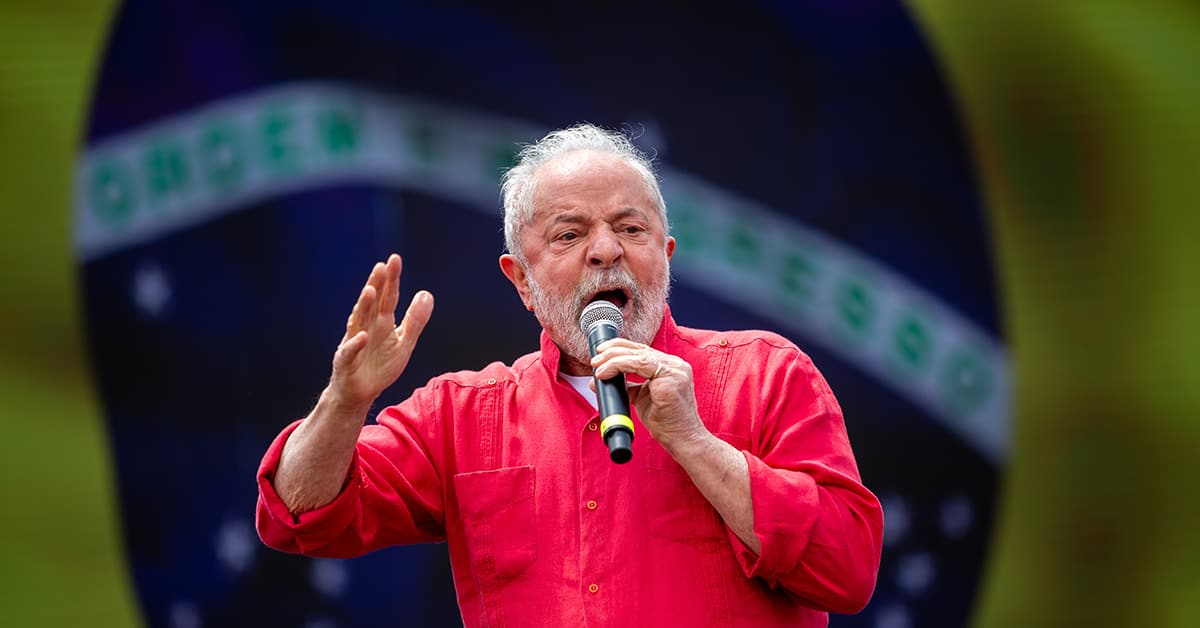Normally markets don’t cheer for leftist leaders, but there are several factors fueling optimism over the outcome of Brazil's election.

Markets have reacted with surprising good cheer to the election in Brazil that put left-leaning Luiz Inácio Lula da Silva in charge.
The São Paulo stock exchange (Bovespa) had its best first trading day after a presidential election in Brazil’s modern history—the Ibovespa index rose by 1.31% on Monday, and by an added 0.77% on Tuesday. For comparison, the index fell by 4.4% when Lula was first elected in 2002, and by 2.24% when Jair Bolsonaro was elected in 2018.
The Brazilian real (BRL) also saw its sharpest value increase against the US dollar on a first post-election trading day, rising 2.6% on Monday and another 0.92% on Tuesday. The currency had been absorbing the brunt of market worries concerning Bolsonaro’s erratic and unpredictable policies—even with market-darling neoliberal Paulo Guedes by his side as Minister of Economy—and a storm of problems, including poverty, joblessness, inequality and declining purchasing power had further taken a toll, leaving the currency undervalued.
Normally markets don’t cheer for leftist leaders, but there are several factors fueling market optimism in Brazil and making it follow a separate path from international markets this week. First, any left-wing urge for social spending will be tempered by the composition of the new Congress, which will include a significant portion of Bolsonaro supporters in both houses.
Lula comes to power on the wings of a coalition of 10 parties that came together to defeat an increasingly authoritarian Bolsonaro, and many of these parties are slightly right of center. So is Lula’s pick for vice-president, former Sao Paulo-state governor Geraldo Alckmin, who in the 2006 presidential elections was defeated by Lula himself in the run-off. Alckmin is slated to have a much more prominent role in Lula’s term than most vice-presidents, and he has already been appointed head of the transition team.
Second, Lula will abolish the so-called “secret budget”—a parallel budget that was one of the more bizarre features of the Bolsonaro administration to gain support in Congress. The budget was dubbed secret by the local press because money slated for health or educational spending needed not have the amount, objective, or names of those who approved it made public, rendering the oversight of billions of reais of federal spending virtually impossible. Beyond the risks of blowing the budget ceiling, there is mounting suspicion that at least part of these funds were funneled into the political campaigns of presidential allies.
Finally, despite Brazil’s record agribusiness exports, Bolsonaro’s disregard for ESG had relegated the country—a former champion of environmental agreements—to the sidelines of the sustainability debate. The position triggered fears in the commodity sector of possible organized retaliation against Brazilian agricultural products. Lula has a much stronger diplomatic reach than his predecessor and has pledged to put Brazil back in the forefront of environmental protections.
There are several challenges ahead for Lula. Most pressing is the federal budget to fund spending into 2024, which needs to be approved by the current Congress. None of the priorities signaled by Lula during his campaign (and almost none of the social programs Bolsonaro had pledged to carry over from the pandemic emergency) are contemplated in the version currently being discussed by Congress. Lula will have less than two months to articulate changes that will allow him to govern once he assumes office on January 1—and this will have to be done despite a hostile outgoing president.
The expected world downturn and recession in 2023 will also affect Lula’s ability to enact reforms while mitigating recession and inflation. If Lula fails to produce popular reforms and create social stimulus for the lower classes, or if the country’s economy contracts, his government will lose support too early in his term, hampering his ability to effectively govern.



